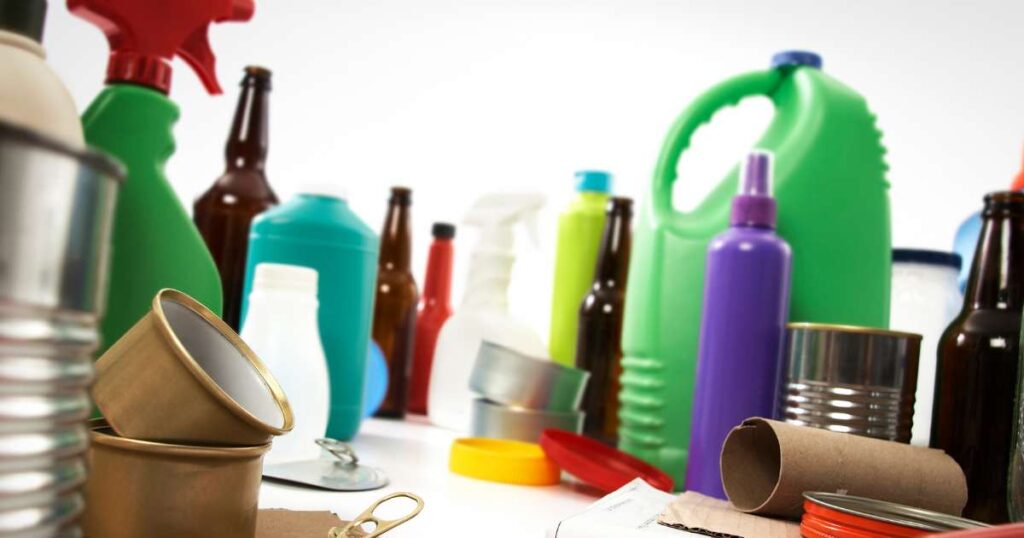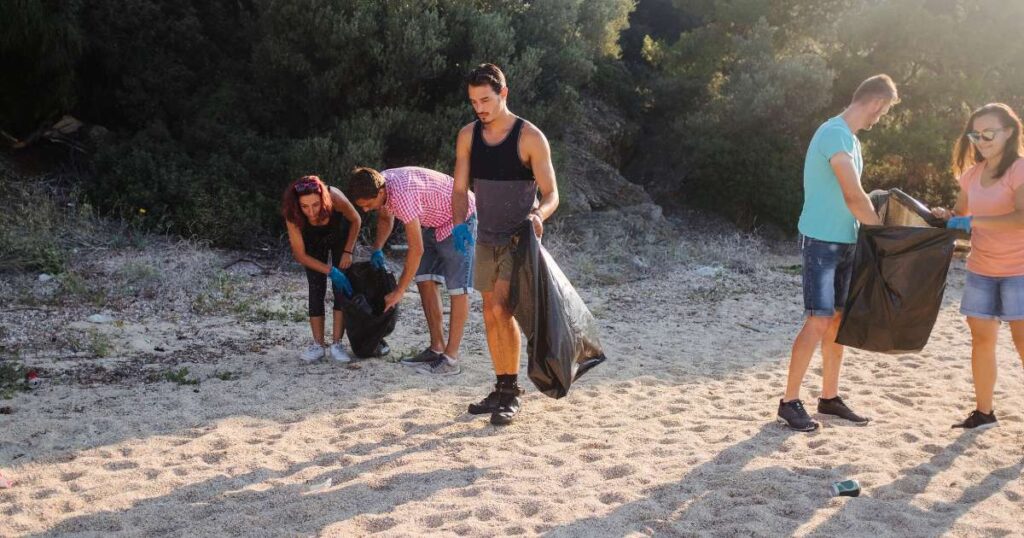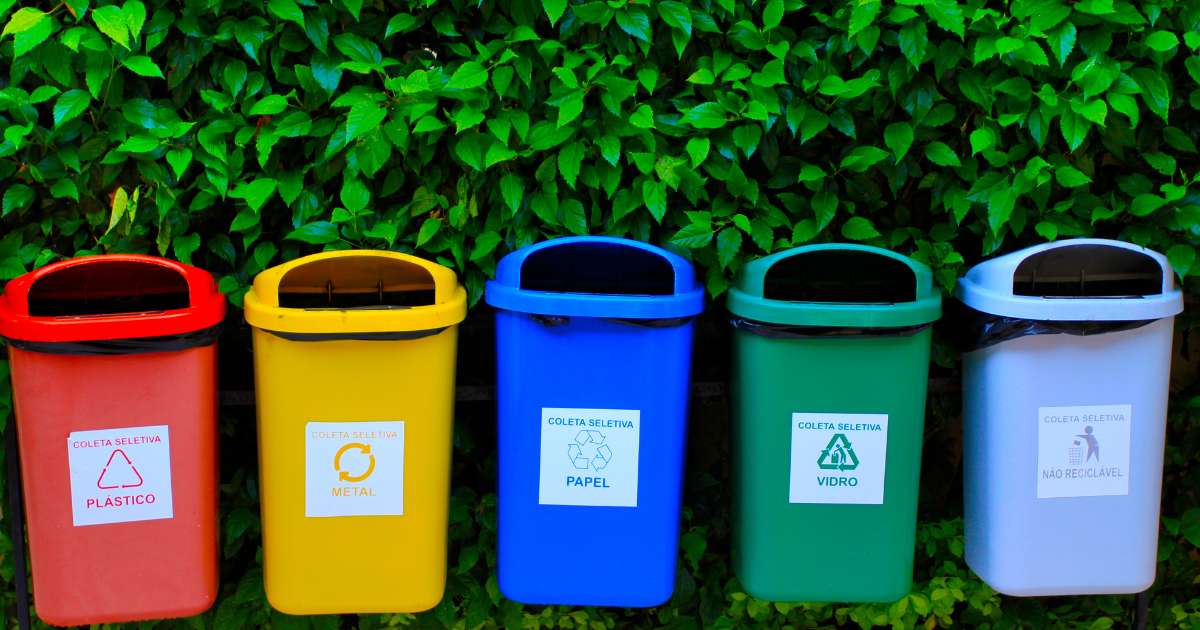Reducing waste in our daily lives is more crucial than ever as we face growing environmental challenges. By adopting mindful habits and making conscious choices, each of us can contribute to a more sustainable future.
By reducing single-use plastics and adopting habits like recycling and composting, even small adjustments can have a big impact. This guide offers practical tips to help you minimize waste, empowering you to make meaningful changes with every step you take.
Adopting the 5 R’s
Refuse Unnecessary Items
Begin by refusing single-use plastics and excess packaging. Politely decline items like plastic straws and promotional flyers, and opt out of junk mail by registering with services like DMAchoice. If you’re not interested in a free sample, it’s better to say no to avoid additional waste. For larger projects or clean-ups, consider using a dumpster rental to handle waste more efficiently.
Reduce Your Consumption
Focus on using less and buying smarter by choosing quality over quantity. Invest for long-lasting, versatile clothing and reusable items instead of throwaway ones. Simplify your surroundings by decluttering and keeping only what’s essential. Don’t forget to tidy up your digital space too organize your files and clear out unnecessary emails.
Reuse Items Thoughtfully
Before throwing items away, think about whether they can be reused or repurposed. Use old jars for storage or transform old t-shirts into cleaning rags. Repair broken items instead of replacing them, and donate items you no longer need to charities or thrift stores.

Recycle Properly
Know your local recycling rules and separate recyclables like paper, glass, and specific plastics according to guidelines.
Make sure recyclables are clean and dry to avoid contamination. Dispose of electronics through designated e-waste recycling programs to manage electronic waste responsibly. For efficient recycling, proper dumpster rental can ensure that materials are sorted and processed correctly.
Compost Organic Waste
Begin composting kitchen scraps and yard waste to decrease landfill waste and produce nutrient-rich soil. If space is limited, consider using a worm composter or look for curbside composting services in your area.
Smart Shopping Practices
Choose Quality Over Quantity
Invest in high-quality, long-lasting products rather than cheap, disposable ones. Research products and read reviews to ensure durability and value. Opt for timeless pieces in your wardrobe to reduce the frequency of replacements. For effective disposal of old or broken items, a dumpster rental can provide a convenient solution.
Buy in Bulk
Purchase items in bulk to reduce packaging waste and often save money. Use bulk bins for grains, nuts, and spices, bringing your own containers to minimize packaging. Store bulk items properly in airtight containers to extend their shelf life.

Opt for Eco-Friendly Products
Select products made from sustainable materials and those with minimal or biodegradable packaging. Look for certifications such as Fair Trade or Organic to ensure environmentally friendly practices.
Sustainable Food Practices
Plan Your Meals
Plan your meals for the week to avoid buying excess food and create a shopping list with precise quantities. Use meal planning apps like Mealime or Paprika to streamline the process.
Store Food Properly
Follow freshness guides for storing different types of produce to maximize their shelf life. Implement the FIFO (First In, First Out) method by using older items before newer ones to prevent spoilage.
Repurpose Leftovers
Transform leftovers into new meals to avoid waste. For instance, turn roast vegetables into soups or sauces, and freeze extras for future use.
Eco-Friendly Home Practices
Reduce Energy Consumption
Install energy-efficient appliances and light bulbs to lower energy use. Use a smart thermostat to manage heating and cooling, and seal gaps around doors and windows to prevent heat loss.
Conserve Water
Install low-flow fixtures like showerheads and faucets to reduce water usage. Collect rainwater using barrels for gardening and landscaping needs.

Opt for Reusables
Replace disposable items with reusables such as stainless steel water bottles and cloth napkins. Educate your household members on the importance and use of these reusables to ensure their effectiveness.
Waste Reduction at Work
Implement Office Recycling
Set up clearly marked recycling bins for paper, plastics, and metals in convenient locations. Promote digital documentation to reduce paper waste and use electronic signatures and cloud storage.
Minimize Single-Use Items
Encourage the use of reusable office supplies, such as dishes, cutlery, and mugs. Switch to refillable pens and pencils to reduce waste from disposable writing instruments.
Host Sustainability Workshops
Organize training sessions to educate employees about sustainable practices and waste reduction. Recognize and reward those who contribute significantly to workplace sustainability.
Community Involvement
Participate in Local Clean-Ups
Join or organize neighborhood clean-up events to help keep local areas litter-free. Promote these events through social media or community boards to encourage broader participation.

Support Local Initiatives
Shop at local farmers’ markets and support businesses focused on sustainability. Volunteer with local environmental organizations to contribute to community-based efforts.
Advocate for Change
Engage in local government meetings to advocate for better waste management policies and sustainable practices. Share knowledge about waste reduction with your network to inspire others to adopt similar habits. Incorporating these practices into your daily routine helps build a more sustainable future. Each small action adds up, leading to a significant reduction in waste and a positive impact on the environment.
Frequently Asked Question
What are some easy first steps to reduce waste?
Start by refusing single-use plastics and unnecessary packaging. Switch to reusable items like water bottles, shopping bags, and containers. Begin composting kitchen scraps and learn the recycling guidelines in your area. Small changes, like reducing paper use and avoiding impulse purchases, can make a big difference.
How can I effectively manage food waste?
Plan your meals and create a shopping list to avoid buying excess food. Store food properly to extend its shelf life and repurpose leftovers into new dishes. Freezing extra portions and using leftovers creatively can help reduce food waste.
What should I do if my local recycling program doesn’t accept certain materials?
Check if there are specialized recycling programs or drop-off locations for those materials. Many communities have programs for electronics, batteries, and hazardous waste. If no options are available, consider reducing or reusing those materials whenever possible.
How can I start composting if I live in an apartment?
If you live in an apartment, consider using a small indoor composting bin or a worm composter. These systems are designed for small spaces and can handle kitchen scraps like fruit and vegetable peels. Some cities also offer curbside composting services or community composting programs, so check if these options are available in your area.
What are some practical ways to reduce plastic waste?
To reduce plastic waste, opt for reusable alternatives such as metal or glass water bottles, cloth shopping bags, and beeswax wraps. Avoid products with excessive plastic packaging and choose items made from biodegradable or recyclable materials. Support businesses that use sustainable packaging and bring your own containers for takeout or bulk purchases.
Can reducing waste save me money?
Yes, reducing waste can save you money in several ways. Buying items in bulk, using reusable products, and avoiding disposable goods can lower your overall spending. Additionally, reducing food waste through meal planning and proper storage means you’re not wasting money on groceries that go bad before you use them.
How can I teach my children about waste reduction?
Teach children about waste reduction by involving them in eco-friendly practices. Start with simple tasks like sorting recyclables, using reusable items, and composting. Explain the impact of waste on the environment and make learning fun with activities like recycling crafts or gardening. Encourage them to adopt sustainable habits early on.
Are there any apps that can help with reducing waste?
Yes, several apps can assist with reducing waste. Apps like “Too Good To Go” help find deals on surplus food to prevent food waste, while “Zero Waste Home” offers tips on living a zero-waste lifestyle. “iRecycle” provides information on where to recycle specific materials, and “Compost Now” helps manage composting efforts.
How can businesses reduce their waste footprint?
Businesses can reduce their waste footprint by implementing recycling programs, using sustainable materials, and minimizing packaging. They can also adopt digital documentation to cut down on paper waste and encourage employees to use reusable products. Conducting waste audits to identify and address wasteful practices can further help in reducing overall waste.
What should I do with items that are not recyclable or compostable?
For items that are not recyclable or compostable, consider reusing them creatively or donating them if they’re still in usable condition. If disposal is the only option, look for designated drop-off points or special waste disposal services for items like batteries, electronics, or hazardous materials.
How can I reduce waste when traveling?
When traveling, reduce waste by bringing your own reusable items, such as water bottles, utensils, and coffee cups. Avoid single-use plastics by packing your own snacks and meals. Choose accommodations that have sustainable practices and use digital tickets and maps to cut down on paper waste.
How can I stay motivated to reduce waste long-term?
Stay motivated by setting achievable goals and tracking your progress. Celebrate small victories and share your successes with friends and family. Join community groups or online forums focused on sustainability for support and inspiration. Remember that every effort, no matter how small, contributes to a larger positive impact.
Conclusion
Reducing waste in your daily life is a continuous journey that involves making informed choices and adopting sustainable practices.
By incorporating the 5 R’s—Refuse, Reduce, Reuse, Recycle, and Rot—into your routine, you contribute to a more sustainable future. Embrace smart shopping, sustainable food habits, and eco-friendly home and work practices.
Engage with your community and advocate for change to further amplify your efforts. Every action, big or small, plays a role in minimizing waste and protecting the environment.
By staying informed, making mindful decisions, and encouraging others to follow suit, you help create a cleaner, greener world for future generations.
